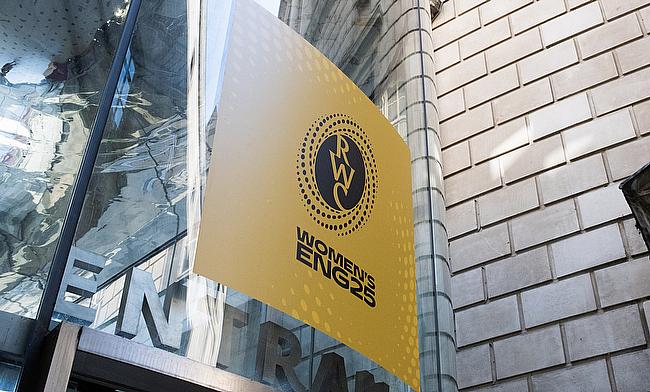Women’s Rugby World Cup: New Zealand’s Era of Dominance
England take on Australia in Brighton on Saturday, already assured of their quarter-final place, but with home World Cup glory now firmly within their sights.
The Red Roses have cruised through Pool A unbeaten and sit as overwhelming 1/4 favourites to claim their first title since 2014.
Standing between England and that ambition, however, are defending champions New Zealand - a team that has built the most dominant dynasty in women's rugby history.
This weekend's final pool matches will determine seedings for next week's quarter-finals, with seven teams already through alongside whichever sides win the remaining spots.
England's comfortable progress through Pool A has been matched by New Zealand's assured qualification from Pool C, setting up the likelihood of another showdown between rugby's two superpowers.
The Black Ferns meet Ireland in Brighton on Sunday, with both teams having secured maximum points from their opening two fixtures. Indeed, these two have dominated the free bet offers and justifiably so, but for Allan Bunting, the question will be whether he can continue the Kiwi control in the tournament.
New Zealand's Championship Dynasty
The scale of New Zealand's World Cup dominance is stark. The Black Ferns have claimed four of the last five tournaments, building a dynasty that has defined women's rugby for nearly two decades.
Their victories came in 2006 (25-17 vs England), 2010 (13-10 vs England), 2017 (41-32 vs England), and 2021 (34-31 vs England). Only England's 2014 triumph interrupted the sequence, when the Red Roses beat Canada 21-9 after New Zealand suffered a shock pool-stage exit to Ireland.
Each championship has featured different generations of players but a consistent attacking philosophy.
Captain Farah Palmer led the 2006 success, Portia Woodman starred in the 2017 Belfast thriller, while the current squad blends experience with emerging talent like Ruby Tui.
Crucially, New Zealand have shown an ability to evolve and respond to setbacks. Their 2014 failure prompted wholesale changes in coaching and preparation, leading directly to the high-scoring 2017 final victory and the dramatic Eden Park triumph over England in 2021.
Part of what makes New Zealand so special is their culture. Rugby there is not just a sport, it is part of who they are. The Black Ferns, like the All Blacks, carry that history every time they play. It can feel like a heavy responsibility at times, but it also drives them. Their quick and instinctive game is not just a tactic; it is the way New Zealand has always played rugby.
England’s rise has come from a very different place. It is built on investment, professionalism, and a strong player pathway. They are the best resourced team in the world, and their system is now seen as the model for others to follow. That is what makes this rivalry so compelling. It is heritage against structure.
England's Home Opportunity
At 9/2, New Zealand may represent the most dangerous outsiders in recent World Cup history, which is admittedly long odds for a team with such championship pedigree and a core of players that have been there before and delivered, including co-captains Kennedy Tukuafu and Ruahei Demant.
England are favourites for a reason. They benefit from centralised contracts, top-class training facilities, and a player pool deeper than anyone else’s. That investment shows in how polished and well-drilled their squad looks compared with most rivals.
The Red Roses have reached four of the last five finals but converted just one into a title. Their 2014 success in France remains their only World Cup triumph, a drought that adds pressure to this home tournament.
Home advantage could play a big part. The final is on September 27, and England will have the crowd behind them all the way through the knockout rounds. It has been a long time since a host nation lifted the Women’s World Cup, not since England did it back in 1994. That adds another layer to their push for the title.
The Path to Glory
Pool positions decided this weekend will shape quarter-final matchups. France, who reached the 2021 semi-finals, have also qualified and possess the flair to trouble any opponent at 8/1. South Africa's historic first quarter-final appearance adds unpredictability at 25/1.
Canada (16/1) reached the 2014 final and remains dangerous opponents, while Ireland's 2014 pool victory over New Zealand proved how quickly World Cup narratives can shift.
England's advantages are clear: home support, professional depth and systematic preparation. But New Zealand's dynasty was built on rising to occasions when it matters most.
At these odds, the Black Ferns represent a team comfortable in the underdog role they've rarely occupied, but know that another trophy in the cabinet is just a stones throw away.


